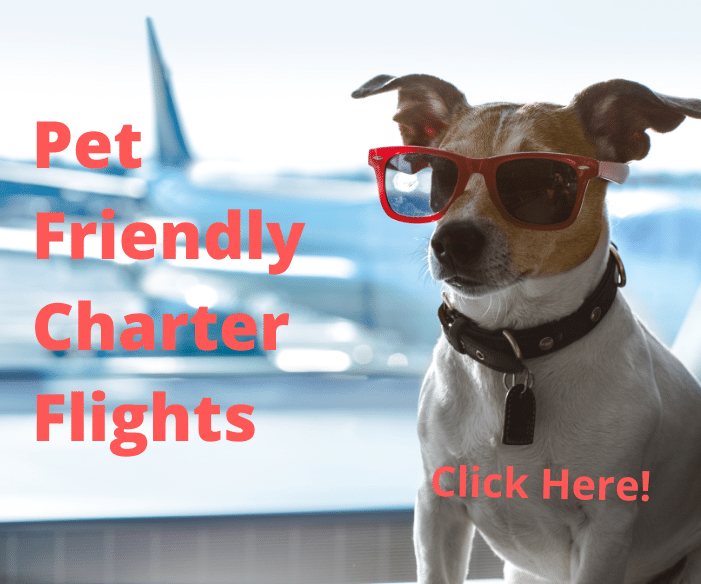“This post contains affiliate links, and I will be compensated if you make a purchase after clicking on my links.”
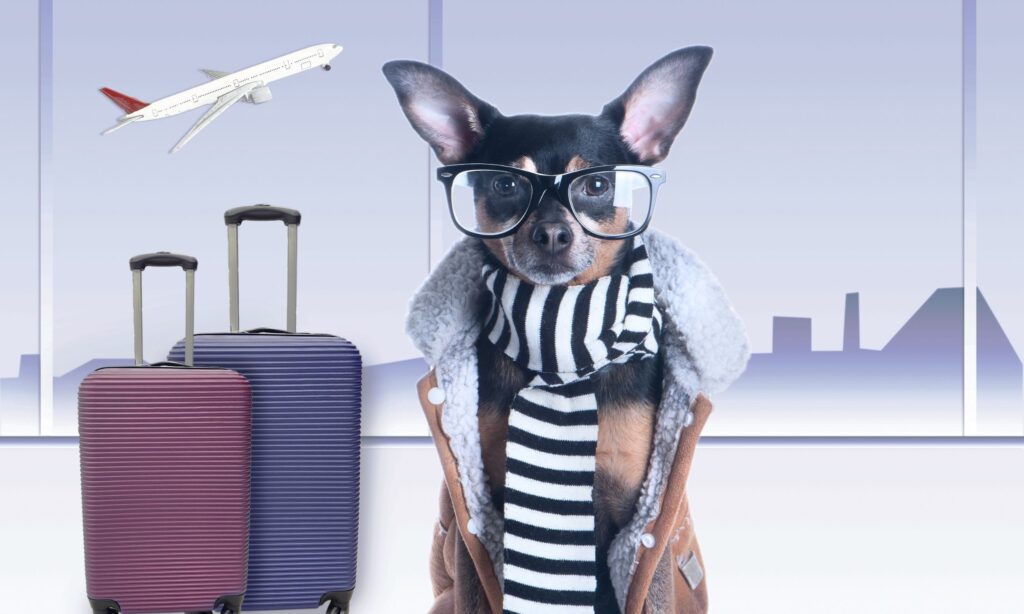
So you’ve made the decision to go on a vacation, and it seems like a great idea to bring your doggo along. You can’t wait to bring them to new sights and take loads of pictures with him.
But wait, it’s a bit more complicated than that.
Flying with your dog is a long process and much more challenging than just flying solo, however it is entirely possible. Here’s what you need to know before deciding whether you should bring your furry friend on your next vacation, or keep him safe at home.
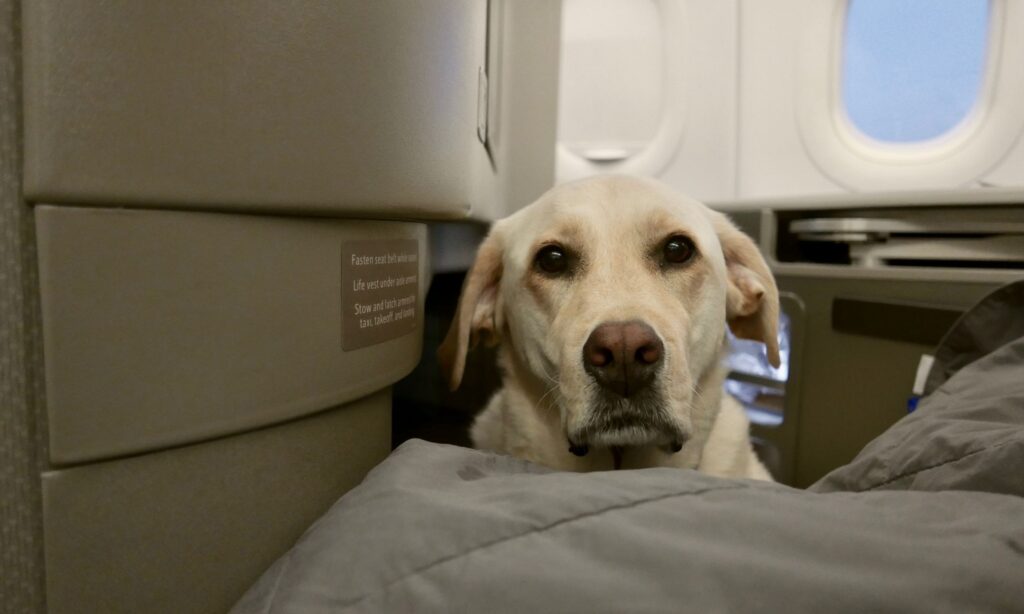
Weigh Your Options
Flying with your pet is definitely no walk in the park. There are so many things to consider and prepare for, not to mention that it’ll stress your fur baby out.
Some things to think about are whether your dog’s temperament is actually perfect for flying. If your dog has a lot of energy and loves to bark a lot, you may want to reconsider. Other dogs are much better at handling noisy and stressful situations. You know your dog the most and know what’s best, so think long and hard about this.
Additionally, if you’re just taking a short trip somewhere, it may be easier (for both you and your dog) to hire a pet-sitter instead.
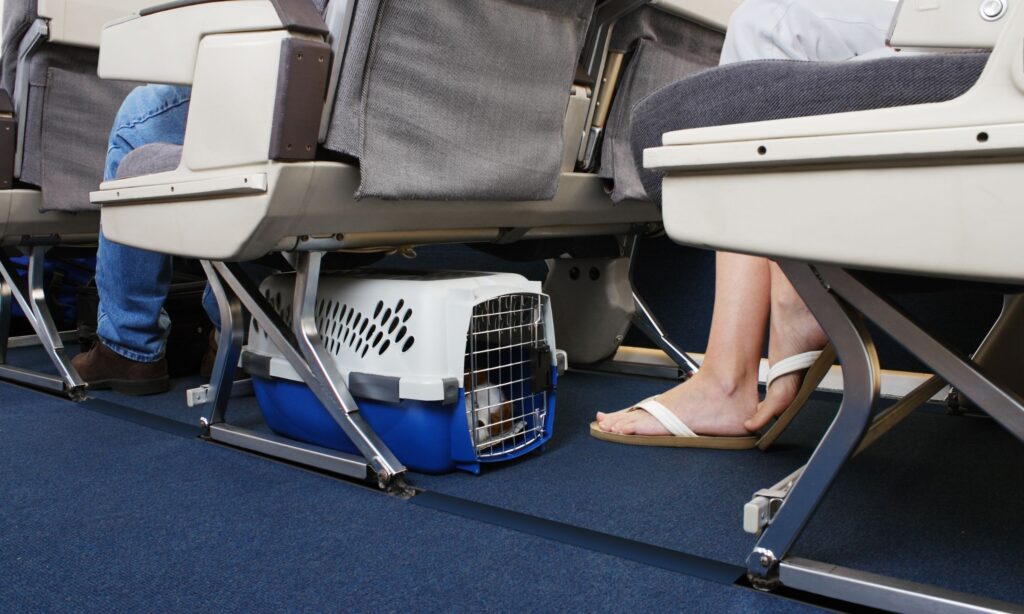
Choose the right travel carrier
The International Air Transport Association (IATA), whose guidelines most airlines follow, has a list of pet travel carrier requirements to help you choose the right one. Generally, the carrier should be leak-proof, durable, have plenty of ventilation, strong handles, and be big enough for your pet to move around.
Be sure to check with your airlines as well regarding their guidelines, including the dimensions of the carrier. This is especially important if you’ll be bringing your pet with you as carry-on. Some breeds, unfortunately, may also not be allowed to fly, depending on the airlines.
If flying a traditional airline isn’t an option and you have the means, you may want to try a charter airline like Villiers Jets. They allow pets and have availability in most regions.
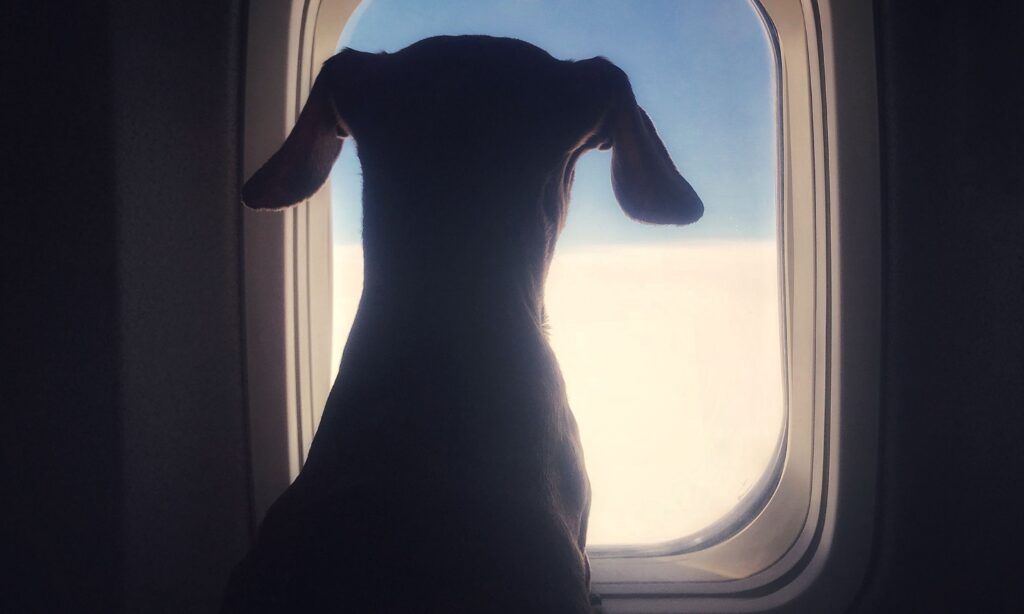
Book your flight wisely
When it comes to choosing your flight, try to look for non-stop flights with no transfers so that there’s less stress for you and your pet. If your pet will be in the cabin, you’ll want to avoid flying during the holidays when airports and airlines are busier. Keep in mind that temperature is another important factor to consider. This means you should be mindful of the weather of the place you’re traveling to as it may be too hot or too cold for your dog in the cabin.
When booking your flight, you’ll usually need to call the airline in advance as most have a maximum number of pets they can accommodate in the cabin. This is why it’s important to plan ahead.
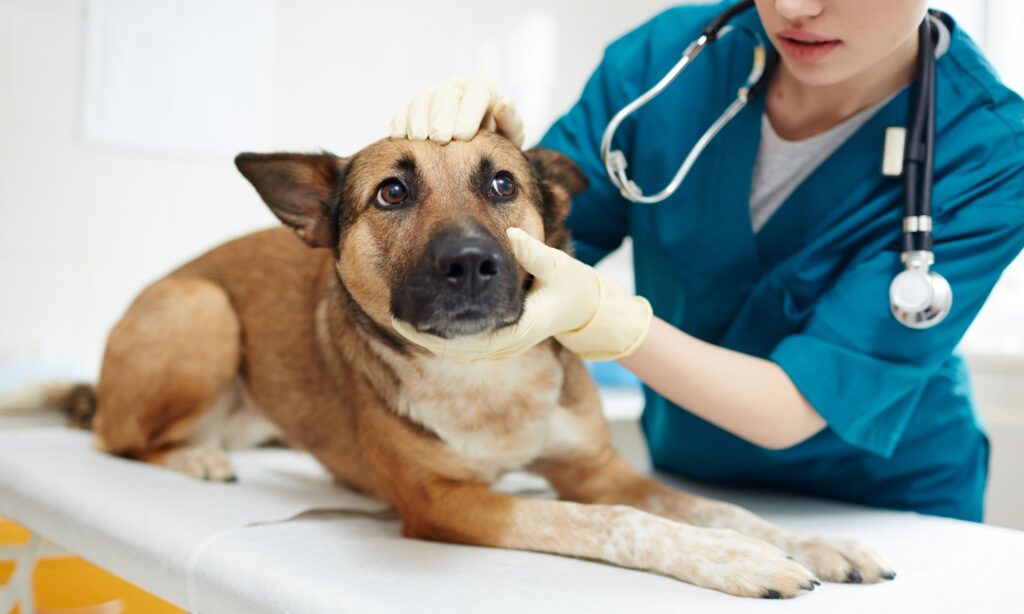
Bring your dog to the vet
Once you’ve booked that much-awaited flight, head over to your vet for the appropriate travel documents. Some airlines will require a pet Health Certificate (do note that this is usually good for only 30 days). You’ll need this certificate for both departure and return so if you’ll be traveling for longer than 30 days, you will need to secure another certificate while you’re on vacation.
This certificate is required to show that your pet is healthy enough to fly and up-to-date with their vaccinations.
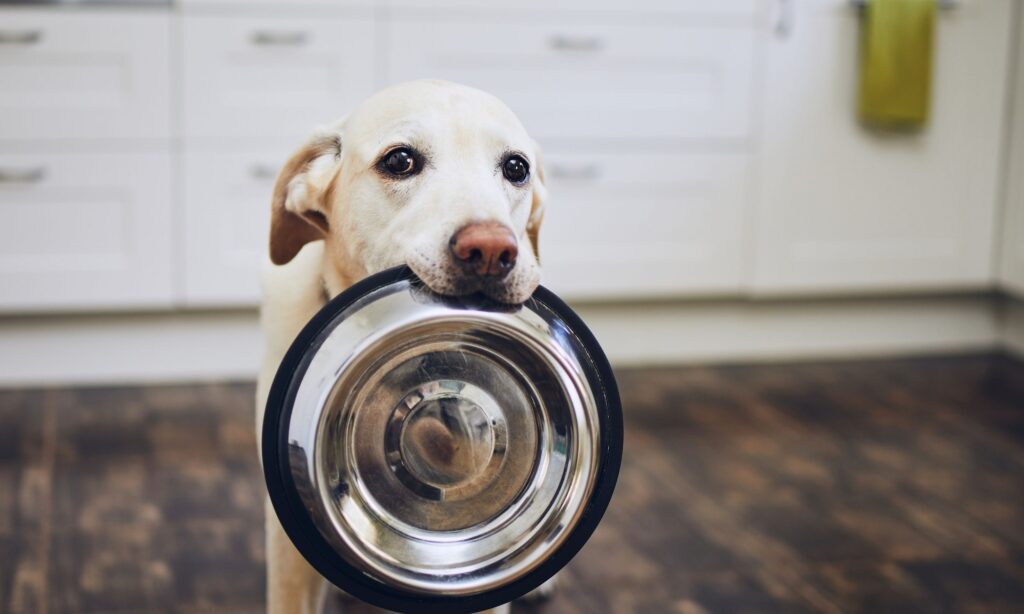
Pack the essentials
Just like going on a road trip or walk with your fur baby, bringing their essentials on the flight is crucial as well. Especially if you’re going to an unfamiliar area, you may want to bring their favorite brand of dog food as well in case it won’t be available in your destination. Depending on the type of dog food you have, whether dry, wet or fresh, you will need to pack them differently. Fresh food may be a bit more complicated as it may not be allowed on flight, so it’d be wise to check with a local store at your destination and order the food ahead of time.
Other essentials include your pet bottle, treats, leash, water bowl, and toys. If your pet is potty trained, you’ll want to bring pee pads, especially during longer flights.
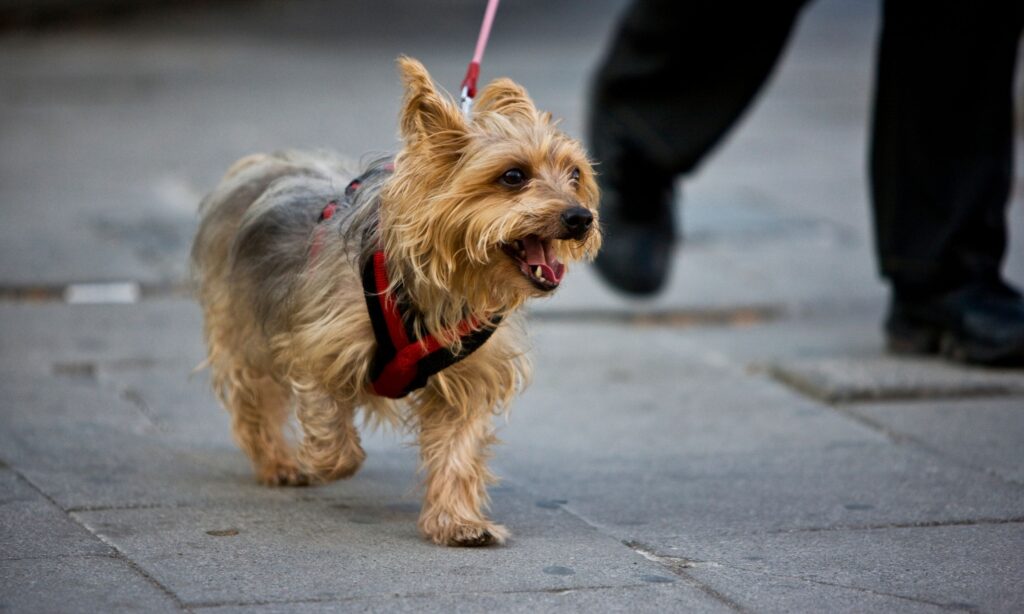
Prepare your dog before the flight
When on the plane, the carrier will be your pet’s best friend. This means you’ll need him to get used to his pet carrier and crate train him at least a week or two before the flight. Your pet will need to feel safe in his carrier since he’ll be in there almost the entire time while traveling.
Right before the flight, give your dog plenty of exercise to tire him out. It’ll be hard for them to release any of their energy in the crate, so take them out for a walk or play fetch with them beforehand. Make sure they also relieve themselves before the flight to minimize chances of them pooping or peeing inside their crates.
A very last resort for some pet owners will be using sedatives on their pet. This will help calm down rowdy or anxious pets. If you do consider this route, always consult your vet regarding the dose. Be sure to check with your airlines as well as some do not allow pet sedation unless there’s a veterinarian’s note.
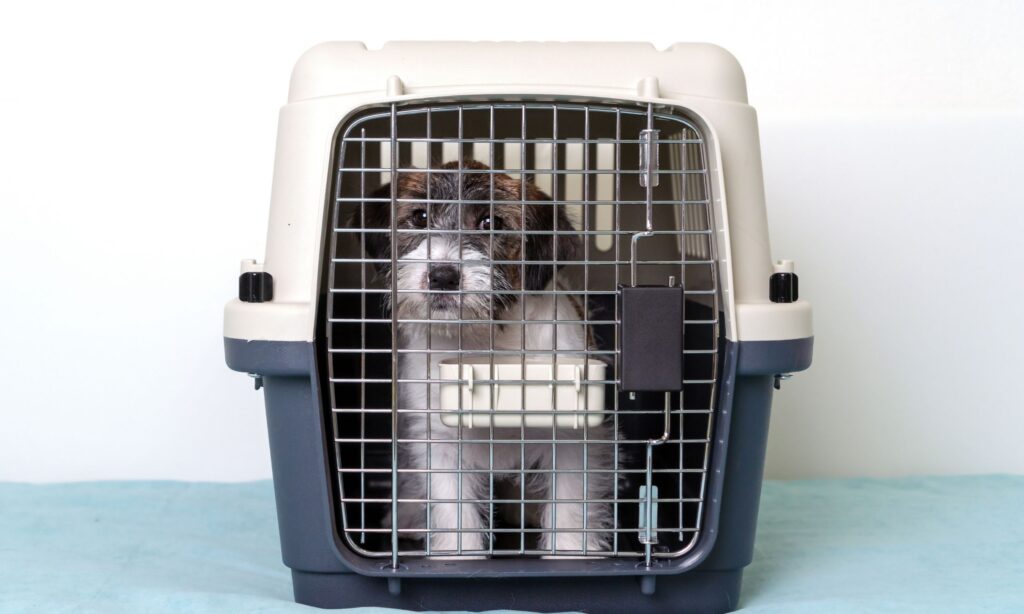
Pick up your dog immediately upon arrival
Once you have finally landed and gotten your baggage, head over right away to the airline’s specified cargo location to pick up your fur baby. There is a time limit as to when you can claim your dog (typically within four hours) and if they don’t get claimed immediately, they could be taken to a veterinarian or boarding facility.
After getting your dog, give them water and some time to adjust to their new environment. It’ll help if you take them out for a walk right after you arrive so that they can stretch after their long, unfamiliar journey.
Traveling with your pet is indeed a long and complicated process, but when you do it right, it’ll be completely worth it. Plus, you’ll make new memories with your fur baby! Be sure to always put the safety and health of your pup first. Which tip did you find the most helpful?


